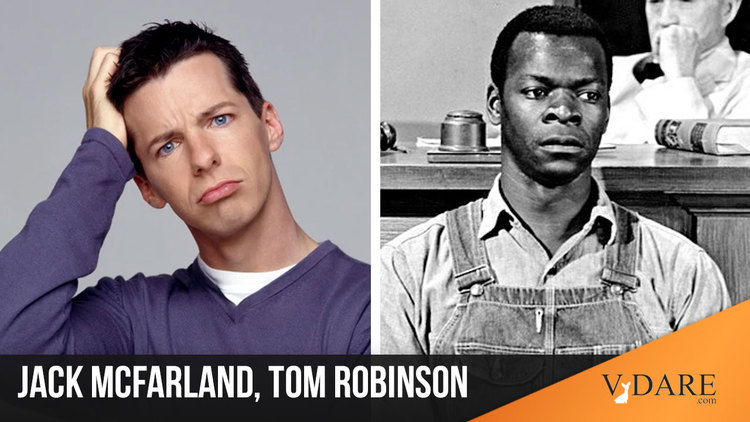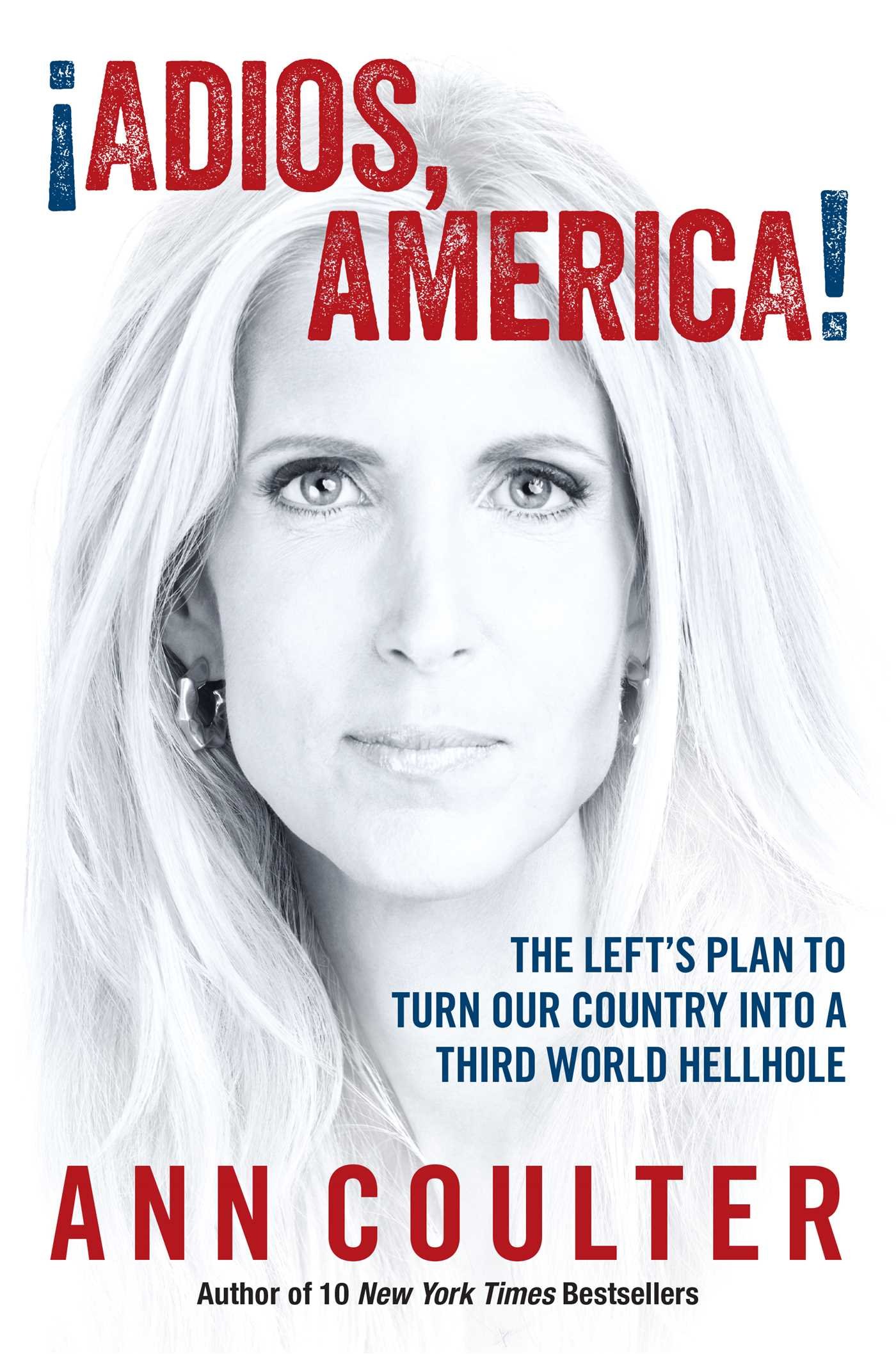


By Ann Coulter
12/14/2022
Earlier by Peter Brimelow: Mercer, Gottfried, Voegeli, Buckley: Was The Civil Rights Act Really A Good Thing?
Subscribe to Ann Coulter‘s Substack UNSAFE.
For at least a half-century now, every special pleader in America has made the following argument: Yeah, but what if we were black?
This is supposed to be rhetorical kryptonite, capable of anathematizing “discrimination” against any group: atheists, women, gays, immigrants, illegal immigrants, the disabled, Muslims — basically anyone except a fully abled, cis-gendered, white male born in this country.
Oh my gosh! You’re right — we DO have to let girls try out for the Green Bay Packers!
OK, fine, we’ll hire more blind lifeguards.
Of course, Shadi Abdullah is welcome to be president of our campus Hillel group.
Naturally, the “What if they were black?” argument came up ad nauseam at the Supreme Court last week during oral arguments over Colorado’s “anti-discrimination” law. According to Colorado, making two gay guys who are married to one another feel “unwelcome, objectionable, unacceptable or undesirable” is the equivalent of separate water fountains for black people.
A web designer had petitioned the court, objecting to the law’s requirement that she design a website celebrating a gay marriage, in contravention of her religious beliefs. But if you’d heard only the questions from Justices Sonia Sotomayor and Ketanji Brown Jackson, you’d think the petitioner was refusing to design websites for black people.
E.g.:
JUSTICE JACKSON: “[C]an I ask you a hypothetical … [What if] they want to have a sign next to the [shopping mall] Santa that says, ‘only white children.’ Why isn’t your argument that they should be able to do that?” [The hypothetical went on for hours, but that was the gist of it.]
These were a few of Justice Sotomayor’s questions:
Here’s a cheat sheet that should help answer the justices’ questions:
Displaying his own unique approach, Eric Olson [Tweet him] Colorado’s solicitor general, who was defending the law (popular name: “We Won the Right to Gay Marriage and Now We’re Shooting the Wounded”), made this pioneering argument: “What [a business] can’t do is say, ‘I reserve the right to refuse service, which means in practice I will not serve black people.’”
A good rule of thumb is that any claim of discrimination that requires a comparison to black people is sophistry.
No offense — I’m sure the rest of you have really moving tales of woe, full of pathos and suffering. But gays, atheists, disabled people, women (whatever the hell that is), immigrants, illegals, please try to remember: YOU’RE NOT BLACK.
It’s discrimination on the basis of race — and only discrimination on the basis of race — that is forbidden by our Constitution. Other forms of “discrimination” may be stupid (if so, the market will punish you) or blindingly logical (football teams allowing only healthy young men to try out, or religious groups limiting officeholders to practitioners of the religion).
Only one type of discrimination ever stirred up such mass revulsion in this country that we decided to amend our Constitution to prohibit it: race discrimination.
You’d think that at a moment when our entire national dialogue is fixated on the legacy of slavery, it wouldn’t be so difficult for people to grasp that black Americans’ unique history is not amenable to cut-and-paste victimhood.
To make up for slavery and Jim Crow, we abrogated constitutional provisions about freedom of association, freedom of contract and freedom of speech. We tossed out basic rules of fairness to allow (temporarily) affirmative action, set-asides and quotas. Behemoth departments were created in Washington to stamp out the last vestiges of discrimination on the basis of race.
By now, of course, the only discrimination involving black Americans is in their favor. But that doesn’t change the rule: NO DISCRIMINATION ON THE BASIS OF RACE.
As G.K. Chesterton said, “When you break the big laws, you do not get freedom, you do not even get anarchy. You get the small laws.”
That’s what “discrimination” law is today. Instead of one big law: “No Race Discrimination!” we have a million little laws about strict scrutiny, intermediate scrutiny, rational basis test, public accommodations, bona fide occupational qualifications, and on and on and on. At the same time, we have open race discrimination against whites and Asians.
Unless you’re alleging race discrimination, take your lumps like a cis-gendered white man. You can be fired, not hired, turned away, rejected, called names, disciplined, looked askance at — and no one cares.
This simple rule allows us to live in what we call “freedom.” As the libertarians would say (if they were real libertarians), start your own website business, bakery, Hillel organization, professional football team, holiday, all-women’s eating club, etc. etc. etc.
Gays, you’re not black. (And you’re not Allan Bakke.) Gays’ median household income is about $115,000 — the highest of any group in America. It’s $45,000 for black people. To my gay readers, answer this honestly: When you move into a neighborhood, do home prices go up or down?
Blacks must be looking at gay rights activists in bewilderment, thinking: Why couldn’t we be oppressed like that?
For the rest of you, memorize this, recite it in the shower, write it on your hand: “Unless I’m being discriminated against on the basis of my race, I will stop being a pain in everyone’s ass.”
COPYRIGHT 2022 ANN COULTER

DISTRIBUTED BY ANDREWS MCMEEL SYNDICATION
Ann Coulter is the author of THIRTEEN New York Times bestsellers — collect them here.
Her book, ¡Adios America! The Left’s Plan To Turn Our Country Into A Third World Hell Hole, was released on June 1, 2015.